Search
Remove Ads
Advertisement
Summary 
Loading AI-generated summary based on World History Encyclopedia articles ...
Search Results

Definition
Homer
Homer (c. 750 BCE) is perhaps the greatest of all epic poets and his legendary status was well established by the time of Classical Athens. He composed (not wrote, since the poems were created and transmitted orally, they were not written...
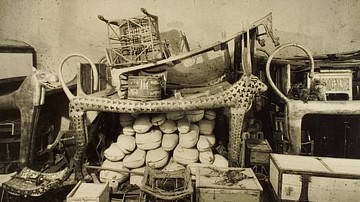
Definition
Book of the Heavenly Cow
The Book of the Heavenly Cow is an ancient Egyptian text dealing with the rebellion of humanity against the sun god Ra, his destruction of the rebels through the goddess Hathor, the reversal of this decision and Ra's mercy, and his ascent...
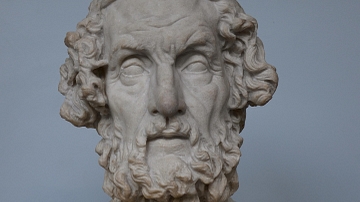
Image
Portrait of Homer
Marble portrait bust of the blind poet Homer with Greek letters carved on each side, Antonine copy (2nd century CE) of a Hellenistic original of the 2nd century BCE, found 1780 near Baiae (Italy). Now in the British Museum.
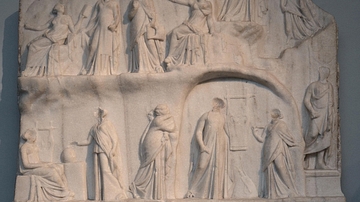
Image
The Apotheosis of Homer
Marble relief depicting the Apotheosis (elevation to divine status) of the poet Homer with Zeus, Apollo and the Muses, signed by the sculptor Archelaus of Priene, ca. 225-205 BCE, found in Italy but thought to have been sculpted in Egypt...

Image
Homer
A 1st century CE portrait of the Greek blind poet Homer, celebrated author of the Iliad and Odyssey. This bust is based on a 5th century BCE original but even that was an idealised representation as no contemporary portrait existed. (Vatican...

Image
The Cotton Pickers by Winslow Homer
"The Cotton Pickers" by Winslow Homer (1836 – 1910 CE). The painting depicts two African-American women labouring in the cotton fields. A major theme of the painting is the continuing racial and economic inequality that existed after the...
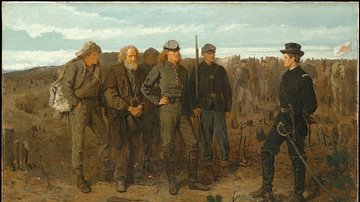
Image
Prisoners from the Front by Winslow Homer
"Prisoners from the Front" by American painter Winslow Homer (1836–1910 CE) depicts the aftermath of a battle during the American Civil War. It portrays Union officer Brigadier General Francis Channing Barlow (1834–1896 CE) capturing several...

Article
Death in Ancient Egypt
To the ancient Egyptians, death was not the end of life but only the beginning of the next phase in an individual's eternal journey. There was no word in ancient Egyptian which corresponds to the concept of "death" as usually defined, as...
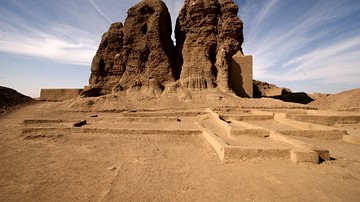
Article
Interrelations of Kerma and Pharaonic Egypt
The vacillating nature of Ancient Egypt's associations with the Kingdom of Kerma may be described as one of expansion and contraction; a virtual tug-of-war between rival cultures. Structural changes in Egypt's administration led to alternating...
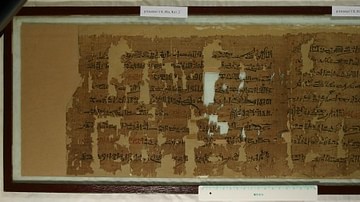
Article
The Satire of the Trades
The literature of ancient Egypt is as rich and varied as any other culture. From the inscriptions of the Old Kingdom of Egypt (c. 2613-2181 BCE) through the Love Poems of the New Kingdom (c. 1570 - c. 1069 BCE) the Egyptian scribes produced...